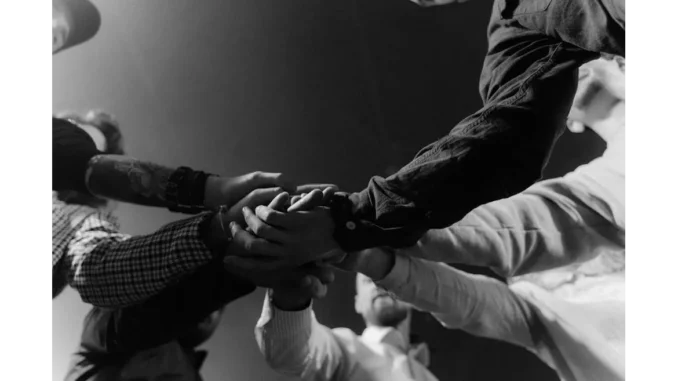
The recent NATO Cyber Defence Conference offered invaluable insights into the evolving landscape of cybersecurity, and I had the opportunity to discuss these with Henry Collins, an experienced professional deeply involved with NATO’s tech and cybersecurity teams. Henry provided thoughtful reflections on the event, particularly the keynote speech by the Chancellor of the Duchy of Lancaster, which set a resonant tone for the conference.
The Chancellor opened the proceedings by expressing gratitude to Rob and Jean Charles, acknowledging their foundational contributions to NATO’s efforts. “It was a respectful nod to those who have laid the groundwork for this gathering,” Henry observed. He noted how this gesture symbolised NATO’s core values — an organisation originating from the ashes of World War II, driven by the need for a united front in global defence. The Chancellor’s speech delved into NATO’s historical roots, highlighting the vision of collective security championed by the post-war UK Labour Government and Ernest Bevin. For Henry, this historical narrative underscored the enduring relevance of NATO. “It’s fascinating how the principles established back then are still pertinent today,” he remarked. “Although the world has changed, the necessity for unity in defence remains unchanged.”
A significant moment in the speech was the Chancellor’s recognition of Sweden’s new status as a full NATO ally, marking its inaugural attendance at the cyber defence conference. “Sweden’s inclusion is a testament to the expanding alliance and the shared commitment to cybersecurity,” Henry commented. This expansion reflects NATO’s adaptability and its dedication to forging strong alliances in the face of burgeoning cyber threats. The Chancellor then pivoted to contemporary challenges, particularly the ongoing conflict in Ukraine. Henry elaborated, “It’s not merely a physical confrontation. The Chancellor shed light on the cyber warfare dimension — a hidden conflict aimed at undermining Ukraine’s resilience and its supporters.” He added, “The scale of Russian cyber aggression is staggering, and it’s imperative for us to counteract these threats collectively.”
The Chancellor emphasised the breadth of Russian cyber activities, which extend beyond Ukraine and target NATO members and partners, including the UK. “Hearing about Unit 29155 and other Russian-aligned groups targeting critical sectors was a chilling reminder of the cyber threats we face daily,” Henry recounted. However, he found reassurance in the measures being taken to expose and neutralise these threats. The discourse then shifted to the role of emerging technologies, particularly artificial intelligence, in enhancing cybersecurity. Henry shared his thoughts: “The Chancellor’s announcement of the new Laboratory for AI Security Research at the University of Oxford marks a significant step. It’s a proactive approach to understanding and mitigating AI-related threats.” He continued, “The lab will serve as a hub for collaboration between industry experts, academics, and government officials — all working to ensure AI is harnessed for security, not subversion.”
Henry was particularly encouraged by the UK’s initiatives to strengthen NATO’s collective cybersecurity. “The emphasis on public attribution and sanctions against hostile actors is a strong stance,” he said. “Additionally, the new incident response project represents a practical solution to help allies defend against cyberattacks on critical infrastructure.” Reflecting on the conference’s overarching focus, Henry appreciated the Chancellor’s call for a whole-of-society effort in cybersecurity. “It’s not just about government action; businesses and citizens need to play their part,” he emphasised. “We’ve witnessed Ukraine’s resilience in the face of relentless cyberattacks. NATO can learn from their strategies and adapt them to fortify our own defences.”
As the speech drew to a close, Henry was reminded of NATO’s legacy — one of solidarity and shared learning. “The Chancellor encapsulated this by underscoring the unspectacular yet essential work of strengthening our cyber defences,” Henry said. “It’s an ongoing effort, but one that’s absolutely necessary in today’s volatile landscape.” Reflecting on the conference theme, Henry mused, “It’s about preparing for today’s threats with the foresight of tomorrow’s innovations. NATO’s ability to adapt and evolve is what makes it a formidable force for peace and security.”
The insights from Henry Collins offered a comprehensive understanding of the pressing issues discussed at the NATO Cyber Defence Conference. The Chancellor’s speech not only highlighted the current threats but also charted a path for bolstering our collective cybersecurity. As we navigate this new era of digital warfare, the message was unequivocal: unity and vigilance are our most formidable assets.


Be the first to comment